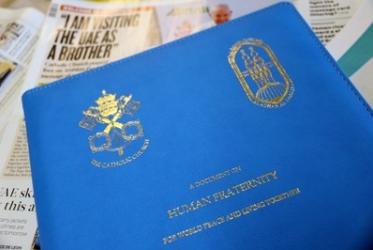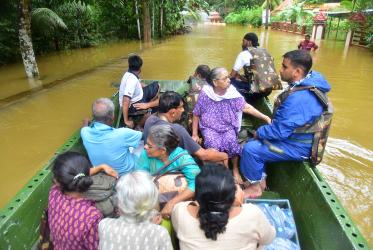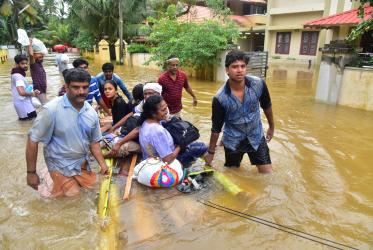Displaying 1 - 17 of 17
04 November 2022
Lighting the lives of many
28 June 2022
WCC calls for prayer for flood-stricken Kerala, India
18 August 2018
During Lent, a “carbon fast” can honour God’s creation
09 February 2017













